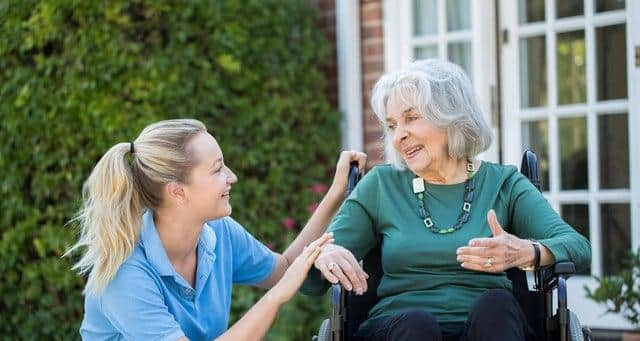More than half of Scottish workers 'do not feel safe'


The Scottish Trades Union Congress (STUC) have conducted a survey of 1500 workers across the country which exposes the ‘sense of dread and unease’ pervading in workplaces - including in the care sector, call centres and transport.In some instances call centre workers are being told that a required need for an ‘office presence’ is the reason they are required to report to shared, unclear work-spaces. One respondent to the survey said: “Companies [are] classifying themselves as key workers when they are not. “Call centres are filthy and tripling the cleaning in them right now only brings them to a level they should have been at in the first place. “It’s not a safe environment. “Call centres not letting staff work from home with their safety. “Vulnerable employees being backed into a corner regarding absence pay and disciplinary action.”
Professor Phil Taylor of Strathclyde University, has released a survey to call centre workers across the UK (but a large number of responses have been received from Scotland) to build a clearer picture of the conditions and coercive measures being used to keep staff working.The interim results of the survey will be issued on Monday. He said: “Many agents have told me their fears: insufficient social distancing, multi-occupation workstations, lifts, poor sanitation, re-used headsets, heating and ventilation systems spreading germs. “Open-plan offices spread contamination and home working is denied.“But alongside bad practice, there is exemplary behaviour where some employers are being highly responsive to requests for supportive home working and are implementing good procedure. “The more we expose what is happening – and the more workers complete surveys like these – the stronger we will be and the more we can stop bad practice and learn from the best.”The STUC survey also revealed more of the day-to-day dangers facing care workers that have been highlighted by Unison, GMB and Unite who represent care workers. A joint statement and guarantees on Personal Protective Equipment (PPE) was agreed by the Scottish Government and unions earlier this week, but monitoring practice, particularly in non-unionised work settings remains a major challenge.One support worker on 24-hour shifts with individuals with complex needs in their own home, said: “It is not possible to social distance. “No masks are supplied unless the individual gets the coronavirus.”Another, working in the community as a personal carer said they are not managing to remain two metres distance when carrying out tasks.They added: “Parts of my body are being exposed, as [we are] only being issued with gloves, aprons and hand gel when it is in stock, which is not very often right now.”The Scottish Government website provides information on social distancing in non-healthcare public services working environments. It specifies that - ‘social distancing of 2 metres (6 ft) should be adhered to whenever feasible at the workplace including at breaks’.It adds that ‘when it is not possible to implement the 2 metre social distancing guidance at the workplace, a brief risk assessment should be undertaken as to whether the task is essential and if so, the distance between workers can be reduced to no less than 1 metre, outwith break times when the 2m social distance guidance applies’.The STUC represents 540,000 working people throughout Scotland.Roz Foyer, STUC General Secretary Designate, said: “When workers and communities are standing together and putting safety first, there will always be those who will not resist the temptation for profit.“We appreciate that in some care roles, two metre social distancing is not possible, that’s why having the right equipment is crucial and regular testing programmes should be implemented for such workers. “As we find out more about virus more we should be refining guidance on PPE to ensure that it is of the most effective standard.She added: “This Easter weekend, we remember the workers putting themselves in harm’s way to keep earning for their family, or to care for their community. And we rue that there are some who value their profits more highly than life itself.“That harm is not inevitable, but is the result of decisions by companies and bosses. “It is inevitable that workers will die as a result of their actions, and then they will realise too late that their greed has cost the highest price.“By coming together, sharing information, and organising, workers can expose poor practice and make their own safety non-negotiable.”
